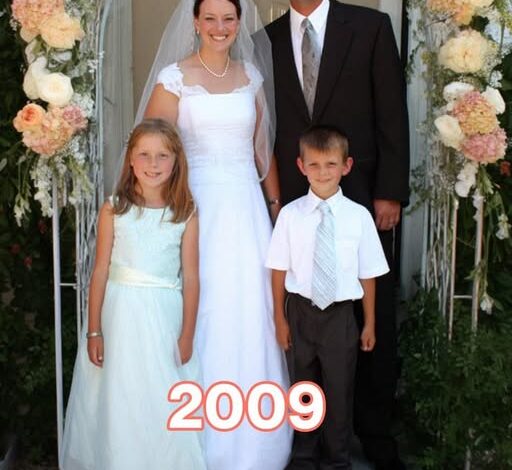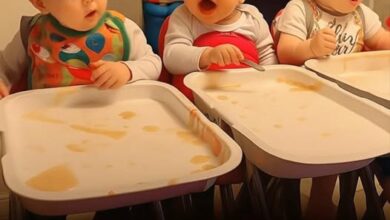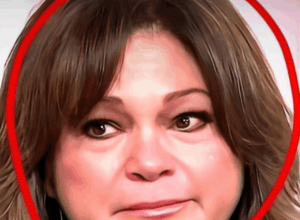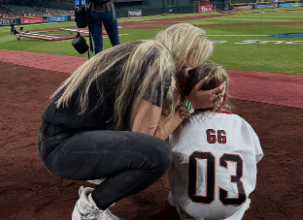
My Husband Used Me as a Maid and Nanny for His Kids, so I Divorced Him, 16 Years Later, I Got a Message from His Daughter That Made Me Cry
I was 21 when I met Paul in a coffee shop in downtown Lakeside. He was 32, handsome in a weathered way, with salt-and-pepper hair and eyes that carried too much pain. His wife had died in a car accident eight months earlier, leaving him with two young children.
“You have the most beautiful smile,” he said, sliding into my world with a confidence that made me blush. “I haven’t smiled in months, but yours reminded me what it felt like.”
At that age, I mistook intensity for romance. His grief wrapped around me like a cloak, and I believed his broken-man act was love. When he asked me to dinner the very next day, I said yes. Three weeks later, I was in his living room meeting his kids: Mia, eight, with her dark hair and gap-toothed grin, and John, six, a mischievous whirlwind who couldn’t sit still.
“Are you going to be our new mommy?” Mia asked bluntly.
Paul squeezed my hand and said, “Maybe. Wouldn’t that be wonderful?”
That should’ve been a warning. Instead, I let myself drown in roses at work, candlelit dinners, and his constant declarations: “You saved us, Carol. You brought back the light.” Four months later, he proposed. His words sealed my fate: “You’re not just marrying me. You’re choosing to be Mia and John’s mother. They need you.”
The guilt hit instantly. How could I abandon children who’d already lost so much? I said yes. At the wedding, the minister asked if I promised to love Paul’s kids as my own. I said “I do,” and the congregation whispered about my selflessness. I felt noble, chosen.
The fairy tale ended before the honeymoon glow faded.
“Carol, help John with his homework,” Paul called from the couch, already powering up his video game console. I’d worked all day, grocery shopped, and cooked dinner, but he was too tired. When John snapped, “You’re not my real mom!” Paul didn’t correct him. He didn’t even look up.
That became my life. I worked full-time, then came home to clean, cook, do laundry, supervise homework, handle bedtime. Paul disappeared into his games. Whenever I asked for help, he dismissed me. “I work hard all day to provide for this family. You just have a little job.”
Worse, he undermined me. If I asked the kids to tidy up, he’d grin and say, “Don’t worry, she’s just being a meanie. Want to watch a movie instead?” Soon Mia and John learned that Dad was fun, while I was the villain. They mocked me openly. “Make me a sandwich,” Mia demanded once. When I asked for “the magic word,” she snapped, “Now!” Paul laughed.
The more I tried, the worse it got. I was the maid, the nanny, never the mother. The breaking point came when Mia and John tossed paper airplanes instead of doing homework. I asked them to stop, and Mia shouted, “You’re not the boss!” John added, “You’re just Dad’s stupid wife!” Paul, from the other room, yelled, “Do I have to do everything around here?” even though he hadn’t lifted a finger.
I stood there with a laundry basket in my arms and realized: I was alone. These kids would never respect me because Paul had taught them not to. I was there to serve them, not to be loved.
Six months later, I left. One morning, while Paul slept and the kids were at school, I packed my clothes and wrote a note: “I can’t do this anymore. I’m sorry for breaking my promises to Mia and John. Take care of yourselves.” Walking away felt like betrayal, but also like breathing again.
The divorce was quick. We had no children together and nothing to fight over. “You’re making a huge mistake,” Paul sneered. “Those kids loved you, and you’re abandoning them.” The guilt nearly crushed me, but I knew the truth: they hadn’t loved me. They’d been taught to hate me.
Sixteen years passed. I married Mark, a high school teacher with steady kindness in his eyes. We had two sons, Tommy and Sam, and built a life that felt safe. Mark shared housework without being asked, praised me as a mother, and handled discipline as a partner. I finally knew what love and respect felt like.
Still, sometimes I thought about Mia and John. Did they hate me? Did they even remember me? I told myself they were better off without me. Then one morning, while checking my email, I froze. A message from Mia.
“Hi Carol, I know you probably don’t want to hear from us, considering how my father, John, and I treated you. But after years of therapy, I realized how cruel I was as a child. You were the only light in our house. You read to us, helped with homework, showed up at school events. You were the mother we needed, even though we didn’t deserve you. Dad turned us against you because it was easier than being a parent. After you left, he married again, but no one stayed. Eventually, he gave up completely. John and I ended up in foster care. I’m getting married in two months, and I’d love for you to come as my mother figure. John would be happy to see you too. If you say no, we’ll understand. Love, Mia.”
By the time I finished reading, I was sobbing. Paul had abandoned them in the end. All those years I thought I’d failed them, when it was him all along.
I showed the email to Mark. “What do I do?” I whispered.
“That’s up to you,” he said gently. “But those kids didn’t abandon you. Their father poisoned them, and now they’re trying to make it right. That takes courage.”
Three days later, I wrote back: “Dear Mia, I would be honored to attend your wedding. Thank you for reaching out. I’m proud of the woman you’ve become. Love, Carol.”
The wedding was in Gray Hill, four hours away. My heart pounded the whole drive. At the church, I saw John first — tall, broad-shouldered, but smiling like the little boy I used to read to. “Carol!” he shouted, hugging me so tight I couldn’t breathe. “Mia’s going to cry when she sees you.”
She did. Walking down the aisle, she spotted me in the third row and broke into the biggest grin of her life. Afterward, she ran straight into my arms. “You came,” she whispered, tears streaking her face.
At the reception, we filled in 16 years of missing pieces. They told me about foster care, therapy, and the moment they realized their father was the problem. “After you left, everything got worse,” John admitted. “He couldn’t handle us, so he gave up. We were angry at you, but eventually we saw the truth. You were the only adult who cared.”
“You were kids,” I said firmly. “You weren’t cruel. You were hurting.”
“Not all the adults failed us,” Mia said softly. “You tried to save us, even when we pushed you away.”
Now we keep in touch. Mia sends photos from her honeymoon and updates about her nursing career. John calls me when college stresses him out. They’ve met Tommy and Sam, who think it’s amazing to have older siblings.
Sometimes I wonder if Paul regrets anything. But mostly, I’m grateful. I thought I’d lost those kids forever, yet here we are, bound not by blood but by the love that refused to die.
Because sometimes, the family you’re meant to have doesn’t look anything like what you planned. And sometimes, broken things don’t just heal — they come back stronger.




